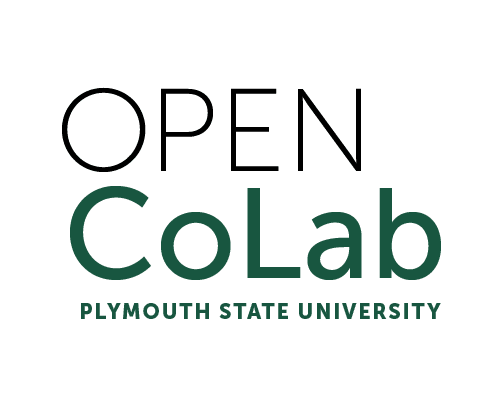

Design Forward
An emergent exploration of critical instructional design.
Design Forward
Portfolio Part: Learning to Teach and Teaching to Learn
Your Teaching Origins
Learning to Teach and Teaching to Learn
Step One
In the boxes below, Name those things/people/experiences that have shaped your approach to teaching. Describe their Influence. Add as many as you would like.
In the Rank column, try to rank your influences (as best as you can), where the lowest number means the greatest amount of influence.
| Name | Influence | Rank |
|---|---|---|
| Dad and Marie | My parents are public school teachers. Most of the pedagogical knowledge I have at this point is from talking to them. | 1 |
| Library school | Doesn’t influence my teaching itself super directly, but it did give me the discipline I teach. | 6 |
| Undergrad | My learning experiences in undergrad largely shaped the way I think about learning. | 3 |
| UNH | This was my introduction to being an instruction librarian specifically. | 2 |
| Substitute teaching | Gave me a lot of experience with coming into classrooms that are not my own. | 4 |
| Research | I’ve done a fair amount of reading about teaching. | 5 |
Step Two
Choose three influences you identified and write three paragraphs about the impact they had on your teaching.
Paragraph 1: Identify specific ways in which these influences can be seen in your teaching.
Paragraph 2: Discuss whether you feel like that overall impact has been positive or negative.
Paragraph 3: Imagine your future teaching self and write how you would like to further integrate or eliminate these influences.
I am choosing to examine the influence of my parents, undergrad, and my time at UNH. I do my best to essentially copy paste my dad’s teaching philosophy, which is “take a risk, dare to be wrong”. His classroom was always a little more anarchist than your typical public middle school classroom, and for the most part it seemed to work. My stepmom Marie was my 8th grade English teacher, and she taught the public speaking unit that year. I paid a lot of attention to how she got a class of 8th graders who were often at odds with each other to feel confident and comfortable enough to try public speaking. This is also a large part of what gave me my public speaking skills (along with being a theatre kid). On top of this, with both of my parents being teachers and completing their Masters of Arts in Education during my childhood, a lot of pedagogical talk was our dinner table talk. I have had no formal education in teaching, but I’ve learned most of the concepts I’m familiar with from talking with them. For undergrad I went to Bard College, which is a small liberal arts school that primarily has seminar-style classes that were focused on group discussion and individual thinking. Disagreeing with professors was (in many but not all) cases encouraged. It was the time in my life I would say I learned the most about myself, and learned to like myself the most. The type of learning environment that contributes to that is the kind of learning environment I would ultimately like to contribute to. Finally, there was my time at UNH. I had done some temporary and informal teaching before, but UNH was the first time I was standing in front of a class giving lessons on my own discipline rather than filling in for middle school science, or whatever happened to be needed on a given day. It was the space that both allowed me to discover that teaching is something I’m good at, and allowed me to discover that teaching is something I love.
I picked these particular influences to focus on because they are the most significant influences and also the most positive influences. My parents gave me the important perspective, that I think is sometimes missing both in higher education and in society as a whole, that teaching is its own discipline with it’s own practices. Teaching is a skill that you work to be good at and learn about, rather than something anyone can just do because they have content knowledge. This perspective makes me acutely aware of my lack of formal teaching education, but also gives me enough grounding to proceed. It has made me more open to learning opportunities like this one, to reading articles to help improve my teaching rather than just doing it live, and asking other teachers for their perspectives. I think this openness and awareness positively impacts my teaching. Bard gives me something to strive for. I want to recreate for others what I got to experience there. And my time at UNH, where teaching went very well for me despite my lack of formal teaching education, gives me the confidence to keep moving forward with teaching now and continuing to learn as I go.
One of the biggest challenges I face as a teacher is that the classes I teach are never my own. I think the biggest lessons to take away from both my dad’s teaching philosophy and my time at Bard is the importance of having an open, interactive classroom. The difficulty is that this requires building relationships with students, which takes time that I simply don’t have in most cases. I keep classes as interactive as I can, and I try to make students more comfortable by being willing to fail in front of them during my demos. I don’t feel like it’s quite enough. In the long term, I would like to discover a way to cultivate a more “open classroom” style while teaching in weird in-between spaces.
